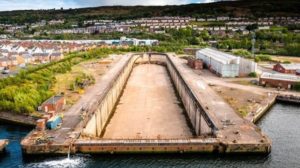Calls on IMO to adopt a no-delays zero target on greenhouse gases

The Institute of Marine Engineering, Science & Technology (IMarEST) is supporting the call for the IMO’s Marine Environment Protection Committee to adopt a clearer target of zero greenhouse gases (GHG) by 2050 – without delays.
The IMO’s Marine Environment Protection Committee (MEPC) is proposing a resolution on zero emissions by no later than 2050 and has it on the agenda for its 77th session (MEPC 77/7/1), which runs from 22 to 26 November 2021.
“We are concerned that the agenda appears to suggest revising the strategy over the next two years and possibly delaying a final resolution until 2023,” says Dr Lorenzo Casarosa, IMarEST policy and professional engagement manager. “The science is clear around the importance of that zero-emissions goal, as well as around the need to make significant reductions before 2030. It is a justifiable goal, and a stance the IMarEST supports, and which forms the basis of our formal response ahead of the 77th session.”
IMarEST is not alone in its call for action. To date, 161 companies have signed up to the Call to Action for the full decarbonisation of shipping and its infrastructure for the IMO to commit to a 2050 target. Of those 161 companies, 46 have already made their own commitment to achieve shipping decarbonisation by 2050 and six have set an even more ambitious stretch target of 2040.
“The good news is that this shows progress is underway,” adds Casarosa. “We are seeing examples of pilot projects with ships using new zero-emission fuels or machinery, as well as zero-emission fuel bunkering infrastructure, zero-emission fuels in commercial operation, and ordering ships that can be easily retrofitted to zero-emission fuels in the future.”
IMarEST says the MEPC 77/7/1 agenda demonstrates the magnitude of the challenge of decarbonising shipping, even when targeting a 50 per cent reduction in GHG emissions by 2050, and that there is a real and pressing need to rapidly increase Technology Readiness Levels (TRLs) to the level required.
Casarosa continues: “Aiming for zero greenhouse gas emissions in 2050 is viable, but only with a significant increase in government and IMO RD&D support and actions, many of which are already underway. Failure to rapidly implement mid-term measures or other measures able to support deployment later on, could result in missing the opportunity to exploit early adopter actions in this decade, or worse, stall the investments currently in plan. This is why we are calling on the MEPC 77/7/3 proposal for a resolution which encourages and mentions actions from governments and the IMO to accelerate RD&D of zero carbon technologies.”










